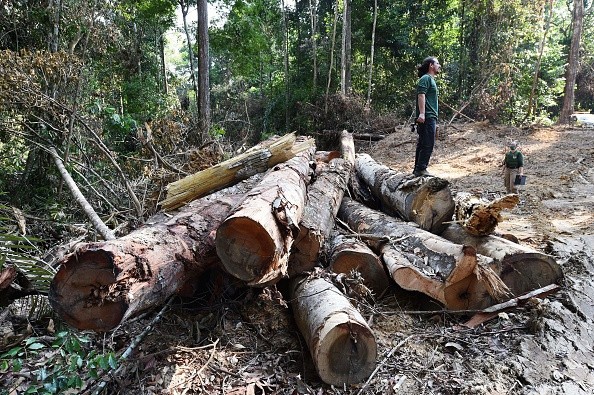More than hundred global leaders have promised to stop and reverse deforestation as well as land degradation by 2030, with $19 billion in public and private funds to be invested in forest protection and restoration.

World Leaders' Pledge to Protect and Restore Forests
Leaders from Brazil, Indonesia, and the Democratic Republic of Congo, which together account for 85 percent of the world's forests, made the promise in a joint statement released late Monday during the COP26 climate discussion in Glasgow.
On Tuesday, a number of more government and private initiates were launched with the aim of achieving that goal, including billions in promises for indigenous forest guards and sustainable agriculture.
According to the nonprofit World Resources Institute (WRI), forests absorb around 30% of carbon dioxide emissions. The trees remove the emissions from the atmosphere, preventing the climate from warming.
This natural climatic protection, however, is fast declining. According to WRI's deforestation tracking initiative Global Forest Watch, the globe lost 258,000 sq km (99,600 sq miles) of forest in 2020. That's more than twice the size of the United Kingdom.
The Earth Innovation Institute's veteran ecologist, Dan Nepstad applauded the agreement for renewing previous promises with additional funds and broader assistance. However, how fast and effectively the support are disbursed determines if it is successful, he added.
Contribution From Countries and Private Sector Investors
From 2021 up to 2025, 12 nations, including the United Kingdom, have pledged to pay 8.75 billion pounds ($12 billion) in public financing to developing countries to help efforts to rehabilitate degraded land and control wildfires. Private sector investors would contribute at least another 5.3 billion pounds.
The aim of COP26 is to maintain the goal of limiting global warming to 1.5 degrees Celsius (2.7 degrees Fahrenheit) over pre-industrial levels. Forests and so-called nature-based solutions, according to scientists, will be critical to achieving that aim.
Every year, humanity releases an almost unfathomable 42 billion tons of carbon dioxide (CO2) into the sky. The bulk of this is due to the combustion of fossil fuels, but a significant percentage, roughly 16%, is due to how human utilize the land. Deforestation, especially in the tropics, is responsible for the majority of these land-use emissions.
To limit climate change, the world's population must decrease these 42 billion tons of emissions to net zero, or a condition in which any leftover emissions are offset by absorption elsewhere. Stopping deforestation is an essential aspect of combating climate change since a ton of CO2 has the same influence on the climate whether it comes from fossil fuels or forest loss.

Reforestation: A Tool For Fighting Climate Change
Although reforestation is a method used for combating climate change that does not depend on untested technology, it can only only be a temporary fix. The amount of land that can be reforested is constrained by conflicting needs such as food production and biofuels development.
The science is clear: failure to cut deforestation quickly would make the massive task of preventing climate change to 1.5°C substantially more difficult - possibly impossible. The quicker the world does this, the more carbon budget will be available for other purposes.
That isn't to say that stopping or even reversing deforestation will be easy - far from it. It must be done in a way that is both long-term and egalitarian.
Related Article : Main Threats of Deforestation
For more news, updates about deforestation and similar topics don't forget to follow Nature World News!
© 2025 NatureWorldNews.com All rights reserved. Do not reproduce without permission.





